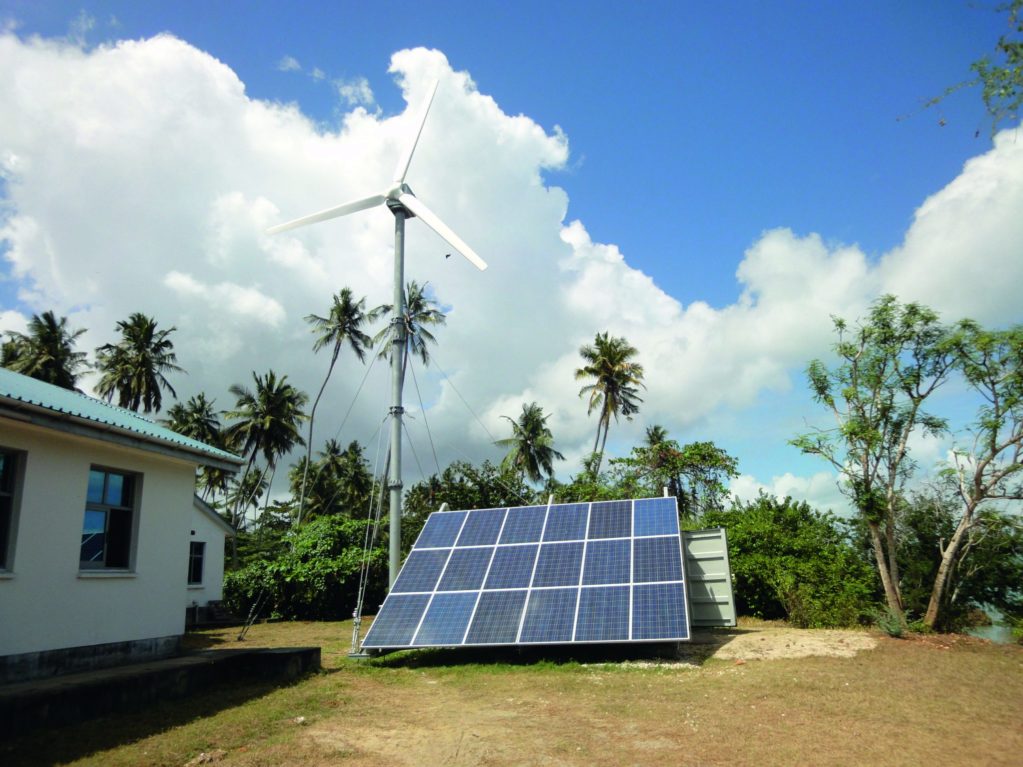Seven years ago, 22-year-old Patrick Ngowi sat in a small office in Dar es Salaam, Tanzania. He held several positions in his newly-formed renewable energy company, Helvetic Solar. He was the founder, CEO, assistant, cleaner and had one investor, his mother.
He was young, energetic and ready to change the way his country creates energy. But it was tough to convince the rest of Tanzania.
“I had cases where you extend a hand to someone and they don’t want to shake your hand. Some people were rude unnecessarily,” he says.
Many companies saw the potential of solar energy, but questioned the capabilities of the young man. Ngowi had come a long way as an entrepreneur and wasn’t going to give up that easily.

Loading...
His first business venture was selling scratch cards at the age of 15 where he would make at least $5 a day. After high school, his parents could not afford to send both him and his sister to university so his mother gave him $1,800 and a plane ticket and he flew to China and set up his own business in the cellular phone industry.
“It was an industry that yielded high profit margins but because capital was low, many people started coming up with similar business models.”
Ngowi adjusted his sights and focused on selling mobile phones to the rural communities. He thought that the market had been neglected and it brought him greater profits.
While working in China he learned that discipline and hard work were essential for success. One thing that made him sit up was seeing the respect people had for one another.
“From the common man on the street to the boss at the top, first and foremost people are very down to earth. They are not egotistic so you don’t get people over the top and for me that was important. As a young man, I saw men who were multi-millionaires who were literally loading the consignment onto the containers. For me it’s one of those things that wakes you up.”
With the money Ngowi made from his cellular business he was able to study renewable energy at Dezhou University, in Dezhou which is close to Beijing. Every day, he was troubled by the way the thick smog would blot out the sun. He decided that he didn’t want to see the same thing happen to the African sun in Tanzania.
“If you can lower your carbon footprint, it’s life changing. The idea is to preserve the world and make it a better place and to leave it better than the way you found it… I am so happy because right now, with the prices of solar panels going down, you’re seeing more and more people are able to afford it.”
While sitting near the beach, Ngowi slouched back in his chair and spoke of the positive impact China has had on the continent. In the last few years, China has made massive investments in several African countries. And while some question their motives, others, like Ngowi, see the benefits in improving the infrastructure.
“If you want to see the impact of how the Chinese are transforming Africa, ask a person in the rural parts of Africa, ask a person who did not have a road, did not have water, did not have a hospital or school. Suddenly those things are being done… They [the Chinese] are bringing about change that we have not seen before and you cannot turn a blind eye to it.”
Over the years, Ngowi has had massive success in turning the Helvetic Group into an $8-million company. Last year he made the FORBES 30 Under 30: Africa’s Best Young Entrepreneurs list. Ngowi hopes to turn Helvetic into a power brand that is able to bridge the gap between the rich and the poor in Africa.
With the strong global interest in Africa, Ngowi still fears that foreign investors overlook African entrepreneurs.
“It will really be so pathetic if today we wait for European, Chinese or American solar contractors to come and light up our rural home while there is a younger person with a proven track record, already doing it, not being able to scale up.”
While the effects of climate change and global warming continue to destroy the world, Ngowi is focused on educating the youth and making changes that will benefit generations to come. For him renewable energy is not a business, it’s a way of life that captures the light.
Loading...
